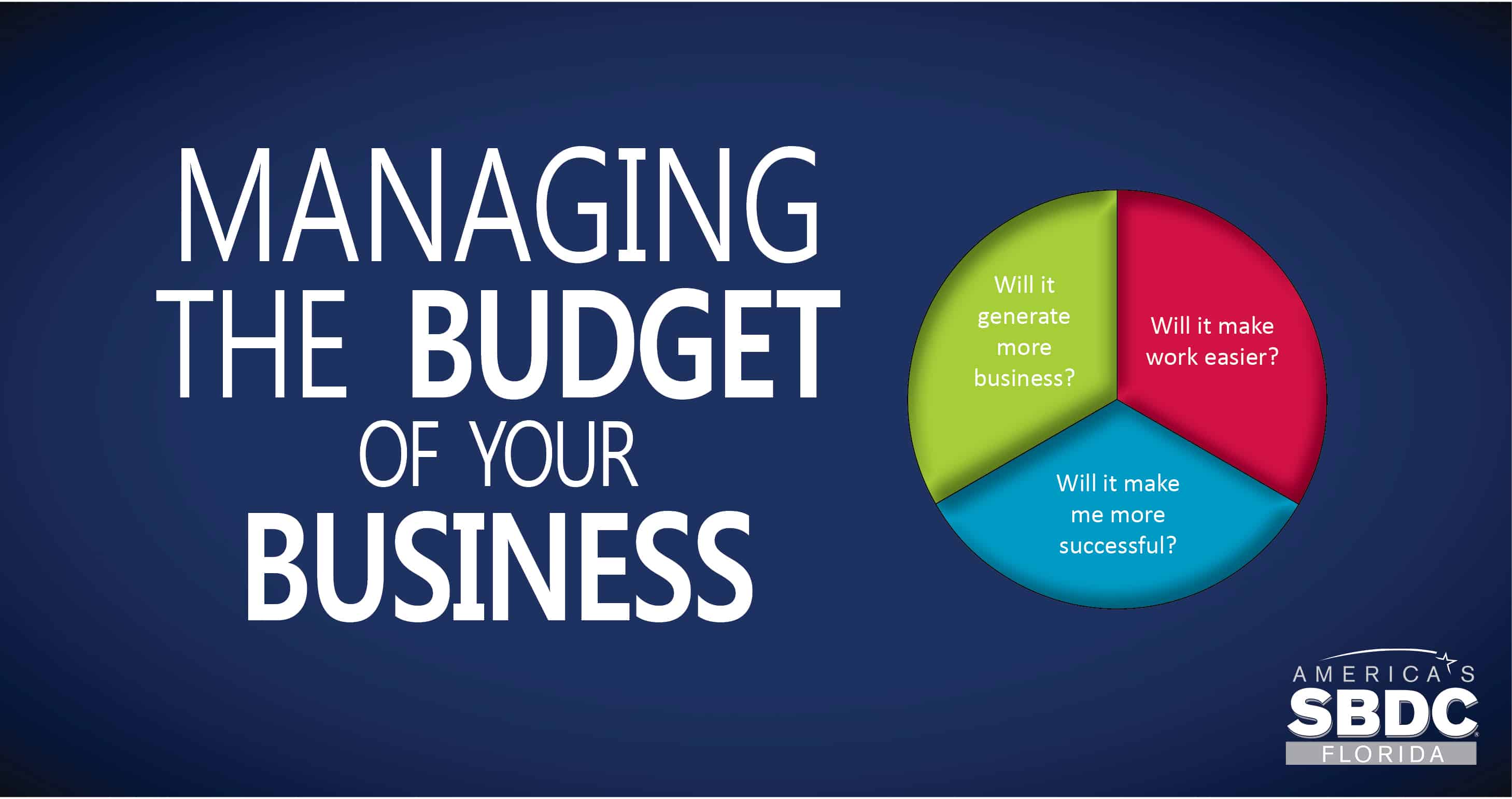Managing the Budget for Your Business
Whether you are taking your first steps or you have an established business, the right financing is extremely important. One aspect that hasn’t changed in the external financing process is that the decision will be highly influenced by your personal credit.
Remember that having healthy personal credit is more than just having a high credit score. It’s important to know what your credit report says about you, your debts, payment habits and creditors. Many credit reports may have errors; therefore it’s critical for you to fix them quickly. That way they won’t surface at the moment you request financing. According to the Federal Trade Commission (FTC), 5 percent of all credit reports have incorrect information.
Let’s determine what areas of your business will need the greatest amount of your money.
- Cost of goods sold – The cost associated with the production of your products or with the ability to provide services.
- Professional fees – This is your team, whether internal, external or a mix of both, which will offer you advice at any given moment. Here we include accountants, attorneys, consultants, and any other professional you might need in order to run your business.
- Technology costs – Equipment and programs (software) are necessary for you to do your job and run your business.
- Administrative costs – The costs associated with the management of your business, rather than with the production, sales and marketing.
- Marketing costs – The costs associated with the promotion of your business, including building a Website, printing business cards and brochures and flyers.
- Salaries and benefits – You must figure not only the cost associated with salaries, but all costs of employees, including benefits.
Creating and working with a budget that accounts for all these areas will allow you to keep control of your business, and if a financing conversation comes about, you will be able to speak concisely about how you spend your money internally.
Everybody would love to have a big enough budget to cover each and every cost category above, but the reality is that when you are just starting out, you will most likely have a minimum of personal resources and a limited access to external funds. In this situation, establishing priorities is essential. In every one of the first five categories, costs can be divided using the following three questions as a guide.
Filter of Priorities
- Will this cost generate more business?
- Will this cost make work easier?
- Will this cost make me appear more successful?
As you review the costs of your business, the number one priority should be to pay your expenses. More business transactions mean more money, and this means additional funds to reinvest. After your budget has grown, the second priority can take more focus. Will purchasing your own fax machine save you time and money? How about updating your software? Finally (and very important when evaluating your expenses), be very careful with the third priority category.
Conventional wisdom tells us that if we appear successful we will attract success; but there is a fine line between feeding your business and feeding your ego. Additionally, many people think that the most expensive products will generate the highest profits. On the other hand, there are people who are reluctant to start with their own personal money and due to that, only buy low quality product or services. Cost is a very important factor, but try to make your purchases based on value rather than cost. What gives you the most bang for your buck? If you are in that stage where you are comfortable making purchases based on priority number three, then congratulations! You are in a great position. Just be very analytical of your expenses and the reasoning behind them.
The first five cost categories are focused exclusively on the business. The last category – salaries and benefits – is very personal. How much do you need weekly, monthly or yearly to live comfortably? Can you keep your current lifestyle, or do you need more? This is an opportunity to get creative. How could you reduce these expenses while you start your business? This can be as easy or painful as you wish, but remember, the start or growth of your business could depend on how you stabilize the ratio of cost and income of the management of your business.
When trying to structure your budget, always remember your priorities. Making money is more important than just pretending you have it. This exercise of prioritizing the costs of managing your business will be in play constantly. Think about ways of generating a solid return on investment and spend wisely.
As printed in the monthly CENTRO Tampa column.
[blog_list thumb=”medium” showposts=”1″ post_content=”full” category_in=”324″ disable=”image,meta,more”]





